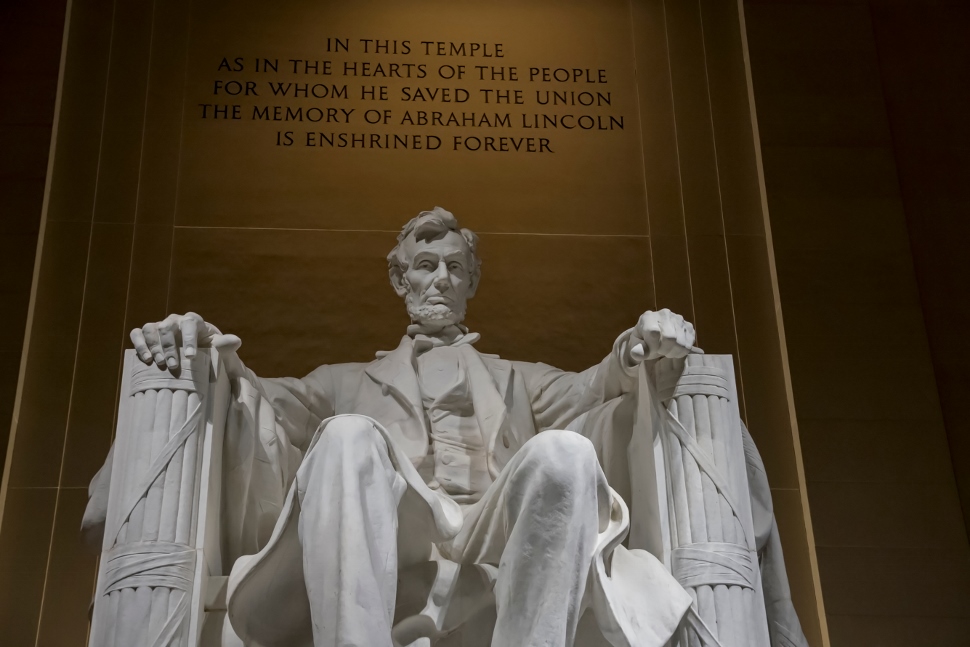
Leadership lessons come from everywhere. From standbys like Bill and Melinda Gates to Warren Buffett and Elon Musk. Even from sources as diverse as the Pope or pizza delivery guys. But some of the best lessons come from history.
Nancy Koehn would know. Koehn is a Harvard Business School professor and historian and author of Forged in Crisis. Koehn recently outlined for Quartz the most important lessons to be gleaned from the most revered president in history, Abraham Lincoln. I share and add to those lessons here.
1. Be crystal clear on the mission.
Lincoln couldn’t have been clearer on the enormity and specificity of his mission–keep the union together and abolish slavery.
All too often I’ve seen leaders enter a role not really understanding what they were solving for or what opportunities to act on. They didn’t use objective data to create their agenda and didn’t get alignment to that agenda. They just started acting on whatever, based on whoever had their ear last.
As you enter a leadership role, gather data, assess, get input, reassess, reconfirm the mission, gain alignment, go.
2. Go macro before micro.
Lincoln was brilliant at carefully considering all stakeholders before making a big decision–especially handy when the issues you’re solving for (like reuniting and healing the country and driving to emancipation) are so explosive.
Leaders eager to make their mark will often dive in and just start making decisions. While it’s important to be decisive, it’s just as vital to step back and take stock on the long-term impact of those decisions and who the decision will impact in what way.
3. Pick three things to focus on. Seriously. Just three.
As a lawyer who argued hundreds of cases, Lincoln learned that all cases came down to no more than three important points. Win those points, win the jury.
By far, the most common leadership Achilles’ heel I saw in my 25 corporate years was the inability to focus on a few key priorities, the failure to understand that the easiest thing is to do is to do everything.
It sounds like a platitude and yet it’s still a trap for so many leaders. Including me. I still have to work hard at resisting the desire to go do, and instead stop to think through what’s worth doing–what will make the biggest difference.
Lincoln made one of the biggest differences of any leader in history. Coincidence that he was skilled at prioritizing? I think not.
4. Seek advice, then own the decision.
Don’t decide in a vacuum, but don’t suck others into blame, either. Share the credit for a good decision and own the painful ones.
Lincoln had many detractors who’d pile on him when he owned a bad decision. And yet he pressed on undaunted.
So must you.
5. Educate others on the stakes of your decision.
Lincoln made sure his constituents understood the tradeoffs to a major decision; the pros and cons and the comprehension that there’d be some pain — expectation setting at the highest level.
As leaders, we often want to just decide and move on. In doing so we can forget to consider the decision through the eyes of those who’ll be affected by it. If we stop to do this, a natural desire arises to spell out what trouble could lie ahead, as no leader wants to thrust unpleasant surprises on followers. So be intentional here.
6. Doing nothing can be doing something.
I’ve seen many a decision made in the heat of the moment. Resist this very human tendency. Step back and cool off and let measured, not maddened, minds rule the day.
Lincoln had more than his share of intensely heated moments to navigate. One such account indicates Lincoln left a signed letter in his desk, discovered after his death. It was a heated note he wrote in the immediate aftermath of the Battle of Gettysburg, directed to Union General George Meade.
In it Lincoln expressed his disappointment that Meade didn’t pursue demoralized Confederate troops as they fled south, missing a chance to end the enemy for good. Withholding the letter, even in a heated moment, avoided alienating the general and slowing down Lincoln’s mission to save the Union.
7. Stand your ground in the face of criticism.
It’s easy to water down a decision or even completely backtrack in the face of intense criticism. Again, it’s only human nature. But if you believe in the decision you made, and no new, perspective-changing information has come in, hold the line.
Even with his re-election at stake and pressure coming from all sides to end the war by any means necessary, Lincoln held firm on his decision that the end of slavery must be a part of a Union victory. History shows his steadfastness paid off.
NOTE: If you like learning from my “snackable” posts, you’ll love LinkedIn Learning, the best source for easy-to-digest online courses on a huge variety of relevant topics. Try a FREE 30-DAY trial here:
https://linkedin-learning.pxf.io/c/2424120/449670/8005




Leave a Reply